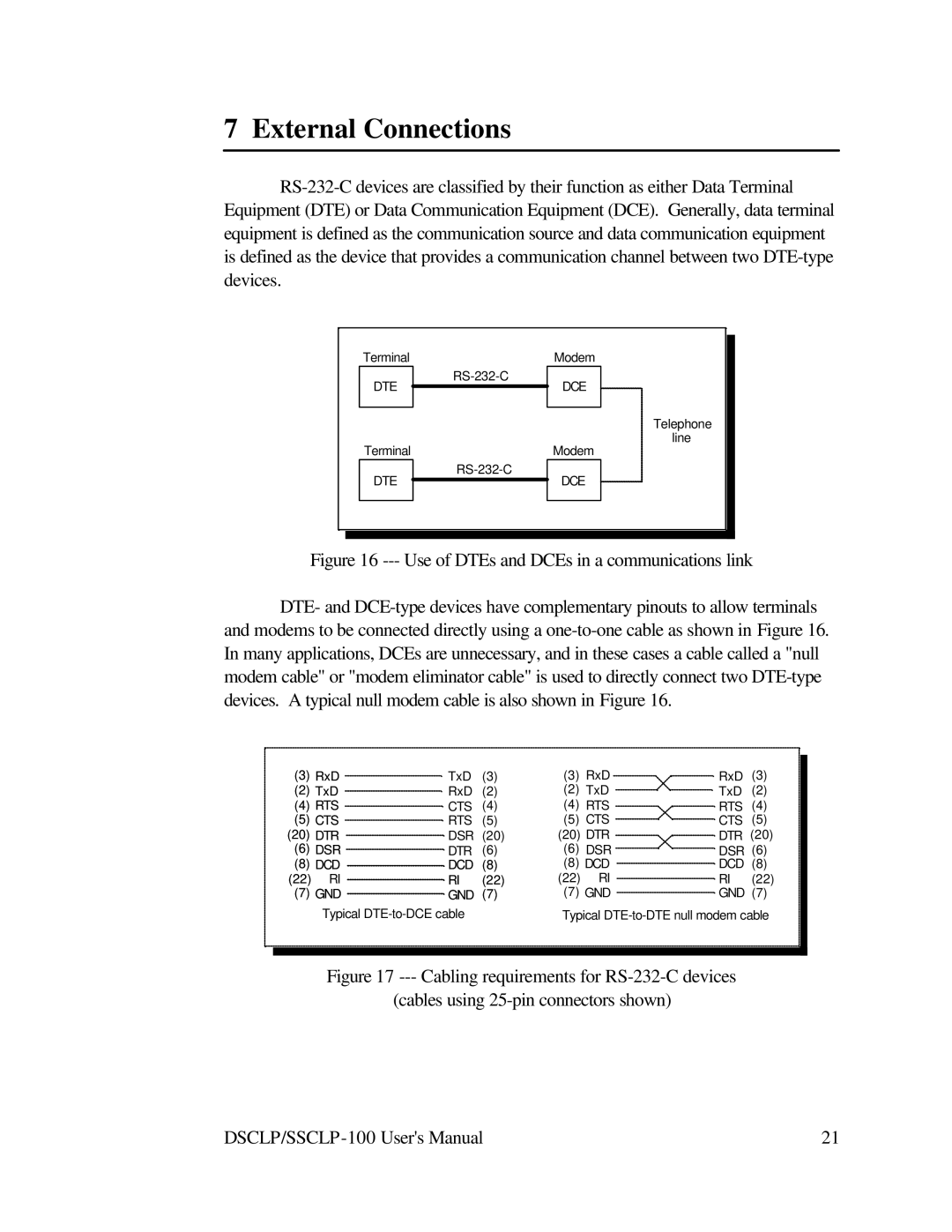
7 External Connections
Terminal
DTE
Terminal
DTE
Modem
DCE
Modem
DCE
Telephone line
Figure 16 --- Use of DTEs and DCEs in a communications link
DTE- and DCE-type devices have complementary pinouts to allow terminals and modems to be connected directly using a one-to-one cable as shown in Figure 16. In many applications, DCEs are unnecessary, and in these cases a cable called a "null modem cable" or "modem eliminator cable" is used to directly connect two DTE-type devices. A typical null modem cable is also shown in Figure 16.
(3) | RxD | TxD | (3) | (3) | RxD | RxD | (3) |
(2) | TxD | RxD | (2) | (2) | TxD | TxD | (2) |
(4) | RTS | CTS | (4) | (4) | RTS | RTS | (4) |
(5) | CTS | RTS | (5) | (5) | CTS | CTS | (5) |
(20) | DTR | DSR | (20) | (20) | DTR | DTR (20) | |
(6) | DSR | DTR | (6) | (6) | DSR | DSR | (6) |
(8) | DCD | DCD | (8) | (8) | DCD | DCD | (8) |
(22) | RI | RI | (22) | (22) | RI | RI | (22) |
(7) | GND | GND | (7) | (7) | GND | GND (7) | |
| Typical |
| Typical | ||||
Figure 17 --- Cabling requirements for RS-232-C devices
(cables using 25-pin connectors shown)
21 |
